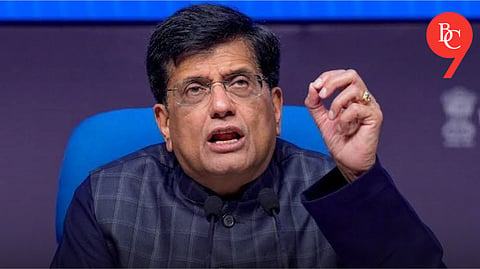

Union Minister Piyush Goyal has sparked a fiery debate in India’s startup ecosystem by criticising luxury brands created by billionaires' children, labeling them as mere "entrepreneurship" rather than true startups. Speaking at Startup Mahakumbh 2025 in New Delhi, Goyal called out the trend of repackaging premium consumer products like "healthy," "gluten-free," and "vegan" ice creams and cookies with attractive packaging, questioning whether such ventures represent India's technological destiny.
Goyal minced no words as he took aim at startups founded by children of billionaires, saying, “Wherever I go, I know at least three or four billionaires whose children make at least one brand of fancy cookies and ice creams. I have no complaints against that, but is that the destiny of India?”
He argued that these businesses, while profitable, do not contribute to the kind of disruptive innovation that could position India as a global leader in technology. “Selling fancy ice cream with attractive packaging is not a startup, it’s entrepreneurship and business,” he added.
Goyal drew comparisons between Indian startups and their Chinese counterparts, emphasizing how China is investing heavily in deep-tech innovation, including electric mobility, battery technologies, robotics, and artificial intelligence. He lamented that India’s focus on convenience-based services like grocery delivery and luxury food items risks falling behind in the race for global technological dominance.
“The other side is working on developing chips and AI models to become self-reliant. Are we going to be happy being delivery boys and girls while China races ahead?” Goyal asked. He urged Indian entrepreneurs to think beyond short-term profit-driven models and focus on creating scalable solutions that can compete internationally.
Piyush Goyal’s critique has reignited the debate about the future direction of India’s startup ecosystem. While convenience-based ventures like food delivery apps play a significant role in job creation and economic growth, Goyal’s call for deep-tech innovation highlights the need for a more balanced approach to entrepreneurship.
